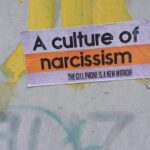ESCAPING THE NARCISSIST
Are you trapped in a toxic relationship? It's time to reclaim your life and find healing. ESCAPING THE NARCISSIST: HOW TO HEAL AND RECOVER FROM NARCISSISTIC ABUSE IN RELATIONSHIPS is your guide to breaking free and starting your journey towards recovery.
Don't let the pain control you any longer. Take the first step today and discover the strategies to overcome emotional abuse and rebuild your life. You deserve happiness and peace.
Start Your Healing Journey TodayNarcissist hoovering is a manipulative tactic used by individuals with narcissistic personality disorder to suck their victims back into a toxic relationship. The term “hoovering” is derived from the Hoover vacuum cleaner, as it describes the narcissist’s attempt to “suck” their victim back into their web of control and manipulation. This behavior often occurs after the victim has ended the relationship or established boundaries, and the narcissist feels a loss of power and control. Hoovering can take many forms, including love bombing, guilt-tripping, gaslighting, and playing the victim. It is important to understand that hoovering is not a genuine attempt at reconciliation or change, but rather a ploy to regain control and continue the cycle of abuse.
Narcissist hoovering can be incredibly damaging to the victim’s mental and emotional well-being. It can leave the victim feeling confused, manipulated, and emotionally drained. The constant back-and-forth of the narcissist’s behavior can create a sense of instability and insecurity, making it difficult for the victim to move on and heal from the trauma of the relationship. It is important for victims to recognize hoovering for what it is – a tactic used by the narcissist to maintain power and control – and to take steps to protect themselves from further harm.
Recognizing the Emotional Impact
The emotional impact of narcissist hoovering can be profound and long-lasting. Victims may experience a range of emotions, including confusion, guilt, anger, and fear. The constant manipulation and mind games can leave the victim feeling like they are losing their grip on reality, as the narcissist seeks to undermine their sense of self-worth and autonomy. This can lead to feelings of helplessness and despair, as the victim struggles to break free from the toxic cycle of abuse.
Furthermore, hoovering can retraumatize the victim, triggering painful memories and emotions from the past. It can also create a sense of powerlessness and vulnerability, as the victim may feel unable to escape the narcissist’s influence. This emotional impact can have far-reaching effects on the victim’s mental health, leading to anxiety, depression, and even post-traumatic stress disorder. It is crucial for victims to recognize the emotional impact of hoovering and to seek support and guidance in order to heal from the trauma of the relationship.
Setting Boundaries and Protecting Yourself
In order to protect yourself from narcissist hoovering, it is essential to establish and maintain strong boundaries. This may involve cutting off all contact with the narcissist, including blocking their phone number and social media accounts. It may also require setting clear boundaries with mutual friends and family members, in order to prevent the narcissist from using them as a means of communication or manipulation. Additionally, it is important to be firm in your boundaries and not give in to the narcissist’s attempts to guilt-trip or manipulate you.
It is also crucial to prioritize your own well-being and safety. This may involve seeking legal protection, such as a restraining order, if you feel that you are in physical danger. It may also involve seeking support from a therapist or counselor who can help you navigate the complexities of the situation and provide you with tools for self-protection. By setting boundaries and prioritizing your own safety, you can begin to reclaim your power and break free from the cycle of abuse.
Building a Support System
Building a strong support system is essential for healing from the trauma of narcissist hoovering. This may involve reaching out to friends and family members who can provide you with emotional support and validation. It may also involve seeking out support groups or online communities for survivors of narcissistic abuse, where you can connect with others who have had similar experiences and gain insight and guidance from their stories.
Additionally, it is important to seek professional support from a therapist or counselor who specializes in trauma and abuse. A trained professional can help you process your emotions, develop coping strategies, and work through any lingering trauma from the relationship. They can also provide you with tools for setting boundaries, protecting yourself, and rebuilding your sense of self-worth. By building a strong support system, you can begin to heal from the emotional impact of hoovering and regain a sense of empowerment and agency in your life.
Practicing Self-Care and Healing
Practicing self-care is crucial for healing from the trauma of narcissist hoovering. This may involve engaging in activities that bring you joy and relaxation, such as exercise, meditation, or creative hobbies. It may also involve prioritizing your physical health by eating well, getting enough sleep, and seeking medical care if needed. Additionally, it is important to practice self-compassion and forgiveness, as you work through any feelings of shame or self-blame that may have been instilled by the narcissist.
Furthermore, it is important to engage in healing practices that address the emotional impact of hoovering. This may involve journaling, art therapy, or other forms of creative expression that allow you to process your emotions and experiences. It may also involve seeking out holistic healing modalities, such as acupuncture or energy work, that can help release stored trauma from the body. By practicing self-care and engaging in healing practices, you can begin to reclaim your sense of self and rebuild your emotional well-being.
Moving Forward and Reclaiming Your Power
Moving forward from narcissist hoovering involves reclaiming your power and agency in your life. This may involve setting new goals for yourself and taking steps to pursue them, whether they are related to your career, relationships, or personal growth. It may also involve reestablishing your sense of identity and purpose outside of the toxic relationship, by reconnecting with your passions and interests that may have been stifled by the narcissist.
Additionally, it is important to work on rebuilding your self-esteem and self-confidence. This may involve challenging negative beliefs about yourself that were instilled by the narcissist, and replacing them with positive affirmations and self-compassion. It may also involve surrounding yourself with people who uplift and support you, rather than tear you down. By reclaiming your power and moving forward with intention, you can begin to create a life that is free from the influence of narcissistic abuse.
Seeking Professional Help and Guidance
Seeking professional help is crucial for healing from the trauma of narcissist hoovering. A therapist or counselor who specializes in trauma and abuse can provide you with tools for processing your emotions, setting boundaries, and rebuilding your sense of self-worth. They can also help you navigate any legal or safety concerns that may arise from the situation, such as obtaining a restraining order or seeking legal protection.
Additionally, it may be beneficial to seek guidance from a life coach or mentor who can help you set new goals for yourself and support you in achieving them. They can provide you with accountability and encouragement as you work towards creating a life that is free from the influence of narcissistic abuse. By seeking professional help and guidance, you can gain valuable insight and support as you navigate the complexities of healing from hoovering.
In conclusion, understanding narcissist hoovering is essential for recognizing its manipulative tactics and protecting yourself from further harm. By setting boundaries, building a strong support system, practicing self-care, reclaiming your power, and seeking professional help and guidance, you can begin to heal from the emotional impact of hoovering and create a life that is free from the influence of narcissistic abuse. Remember that you are not alone in this journey – there are resources and support available to help you heal and reclaim your sense of self-worth and agency.


